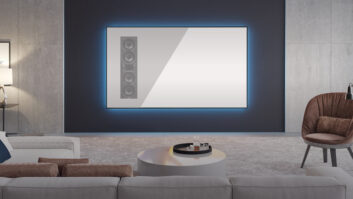The Consumer Electronics Association (CEA) condemned the Federal Communications Commission’s ruling that all new digital TVs and related equipment must include digital tuners to receive over-the-air HDTV signals as of July 1, 2007.
The three-to-one vote on Aug. 8 specifically mandates that all new TVs greater than 13 inches and all TV receiving equipment, such as VCRs, DVD player/recorders, will be required to include DTV reception capability.
The FCC said that its jurisdiction in the matter was established with the 1962 All Channel Receiver Act. The FCC quoted the act in a press release, which said the commission has the authority to require that TV sets “be capable of adequately receiving all frequencies” allocated by the FCC for “television broadcasting.”
CEA disputes that view and plans to challenge the ruling, either in court or by requesting the FCC to reconsider. (See interview at right.)
The CEA reiterated its claim that the ruling will increase the cost of an average television set by $200 to $250 each. Broadcasters and the FCC countered by saying the additional cost would be $15, if that. Television manufacturers have said that mandating digital tuners in all sets is a waste of money for consumers because close to 90 percent of the country watches either analog or digital cable, or satellite TV, using an outside tuner.
“The FCC has just imposed a multibillion dollar annual TV tax on American consumers,” Shapiro said. “With fewer than 13 percent of American households relying on over-the-air reception for their TV signal, we don’t need a digital broadcast tuner embedded in every new television in order to accelerate the DTV transition. We need digital cable equipment compatibility.”
During the proceedings, FCC Chairman Michael Powell called the phrase “FCC TV Tax,” which was part of a CEA newspaper advertising campaign in the days prior to the decision, “outright ridiculous.”
He added that the new sets will “have slightly higher prices, but more capabilities” and that the decision moves the marketplace from “HDTV-ready to HDTV-reality.” Powell also disputed the $250 price tag, noting that by the time the deadline is reached “there will be a marginal increase in cost” due to the ever-plunging price of microchips.
It is CEA’s contention that the largest obstacle to widespread adoption of DTV is the lack of a nationwide standard for sending HDTV over cable, not the lack of over-the-air tuners.
Powell did not dispute that assertion in his prepared statement. “We readily admit that there are additional steps to take, such as the development of ‘plug-and-play’ sets for those cable subscribers who do not want to use a set-top box. But simply because there is more work to be done does not mean that we should defer the progress we can make today.”
The FCC ruling will be phased in during a five-year period. Here are more details:
- Receivers with screen sizes 36 inches and above: 50 percent of a manufacturer’s units must include DTV tuners effective July 1, 2004, the rest by July 1, 2005.
- 25- to 35-inch receivers: 50 percent of a manufacturer’s units must include DTV tuners by July 1, 2005, the rest by July 1, 2006.
- 13- to 24-inch receivers: 100 percent of a manufacturer’s units by July 1, 2007.
- VCRs, DVD player/recorders, etc. that receive broadcast signals must include DTV tuners by July 1, 2007.
The FCC has been under pressure in recent weeks to push the digital TV transition from Capitol Hill (TWICE, Aug. 8, 2002, p. 4). Letters have been sent to Chairman Powell from Senate Commerce Committee Chairman Fritz Hollings (D-S.C.) and a joint letter from Representatives Billy Tauzin (R-La.) and John Dingell (D-Mich.), chairman and ranking minority leader of the House Commerce Committee, respectively.
While CEA is ready to challenge the FCC decision in court, the association is entering the fray without a unified front. Zenith, which will benefit from the decision because it owns the patent for tuners and will receive royalties, favors the FCC decision. (See story, right.) And Thomson Consumer Electronics asked the FCC to extend its deadlines and has said it is not completely opposed to digital tuners in sets 32-inches and above.






